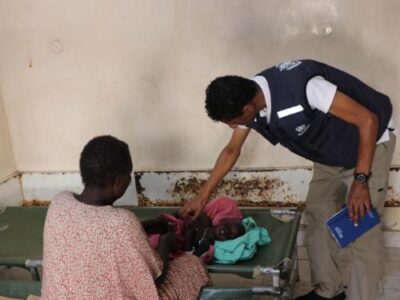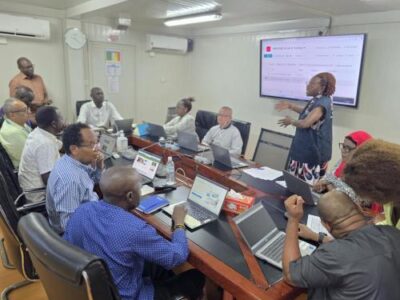Harare – In a significant step towards strengthening public health and combating emerging health threats, Zimbabwe has convened an inception meeting for the development of its national One Health strategic plan. Led by the Public Health Advisor for the Office of the President and Cabinet, the meeting brought together key stakeholders from human, animal, plant and environment sectors to chart a course for a more integrated and comprehensive approach to health.
The One Health approach recognizes the interconnectedness of human, animal, plant and environment (ecosystem) health and emphasizes the importance of collaboration among these sectors to address complex health challenges. Thus, the strategic plan will guide the country’s efforts to combat zoonotic diseases, antimicrobial resistance (AMR), and other emerging health threats as well as strengthen the health system.
“As we face increasing threats from zoonotic diseases and antimicrobial resistance, it is imperative that we adopt a holistic approach to health so this plan will serve as a roadmap to unite human, animal, plant and environmental health sectors, ensuring that we work together to protect the health of our people and ecosystems,” said Dr Agnes Mahomva, Public Health Advisor to the President and Cabinet.
Zimbabwe has made substantial progress in addressing AMR. The country developed and is implementing comprehensive national action plans to combat AMR, fostering a multi-sectoral approach that involves healthcare providers, veterinarians, farmers, and policymakers. These plans have focused on promoting appropriate antimicrobial use, enhancing surveillance and monitoring systems, and strengthening laboratory capacities. The country with support from the Fleming Fund and Multi-Partner Trust Fund, has invested in strengthening its laboratory infrastructure, renovating 14 laboratories to enhance diagnostic capabilities and surveillance. Zimbabwe has already demonstrated its commitment to One Health through its involvement in various initiatives, including the development of proposals to the Pandemic Fund and the updating of its pandemic influenza preparedness plan.
Moreover, Zimbabwe actively participated in regional and global initiatives to combat AMR, collaborating with neighboring countries and international organizations to share knowledge, best practices, and resources. The country has also invested in research and development to better understand the drivers of AMR and explore innovative solutions.
WHO is supporting One Health initiatives in Zimbabwe, providing technical guidance and resources. The organization has played a pivotal role in the development of the country’s proposal to the Pandemic Fund and its pandemic influenza preparedness plan. WHO has actively contributed to the establishment of influenza sentinel site surveillance protocols, demonstrating its commitment to strengthening Zimbabwe’s public health infrastructure. Additionally, WHO supported the renovations of the laboratories relating to human health, the development of national action plans as well as carry out activities to raise awareness on the impact of AMR.
Speaking on behalf of the WHO Representative to Zimbabwe Dr Desta Tiruneh, Dr Mutale Mumba highlighted the opportunities that a One Health approach offers for building resilience in communities and advancing towards the Sustainable Development Goals. “It is a development imperative and should be mainstreamed in development planning,” he said. “With the increasing occurrence of dangerous pathogens, some of which have zoonotic origins, a One Health approach is essential for prevention, preparedness, and response,” added Dr Mumba.











Comments